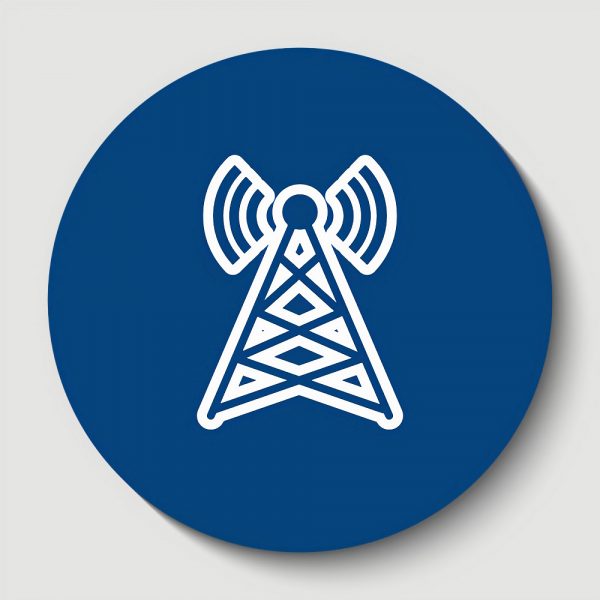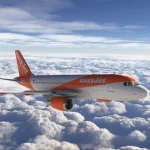Mobile Operators Unhappy as Ofcom Set Licence Fees for 2100MHz

The UK telecoms regulator has today set new annual licence fees (ALF) for spectrum licences in the 2100MHz band, which was originally auctioned off in April 2000 to support the rollout of 3G mobile (mobile broadband) networks for the eye watering sum of £22.5bn. But mobile operators aren’t happy about the change.
The original auction applied a fixed licence term of 20 years, to deliver 3G services. The licences, which are currently held by EE (BT), Vodafone, O2 (VMO2) and Three UK, include both paired and unpaired spectrum. But in 2011, and following a UK Government direction, Ofcom varied the terms of these licences to make them indefinite and to require the payment of annual licence fees from 1st January 2022.

The UK Government direction requires Ofcom to set annual licence fees that reflect the full market value of the spectrum, which is what the regulator, after an initial consultation (here), are now attempting to deliver. We should point out that in 2013 the 2100MHz band was extended for use alongside faster 4G networks (here), which operators like EE have already adopted.
Advertisement
However, most mobile operators gave an unhappy response to Ofcom’s proposal (a government Directive). For example, BT called it “disproportionate and unjustified“, while Three UK felt it was “inappropriate” and warned that Ofcom had “significantly overestimated the UK value of the 2100MHz paired spectrum.”
Mobile operators generally questioned the validity of ALFs, as well as how their values had been calculated, and warned that excessive fees could inhibit the trading of spectrum. Vodafone said it was “questionable how long Ofcom’s approach to setting ALFs can be sustained” because “the process is reliant on comparing auction outcomes that will become increasingly historic.”
Nevertheless, following consultation, Ofcom has now set an annual licence fee of £0.561m per MHz for “paired” 2100MHz spectrum (slightly lower than the £0.567m per MHz originally proposed).
Ofcom’s Statement
We consider that setting fees for the paired 2100 MHz spectrum which reflect the market value (opportunity cost) of the underlying spectrum is consistent with our statutory duties, including our duty to secure the optimal use of the spectrum. It is also in line with our general policy on spectrum pricing as well as the Government Direction.
On unpaired spectrum, further to consultation responses, we plan to consult further in the first half of 2022 on the future use of the band, including on a proposal to revoke the unpaired licences and therefore are not setting a fee in this statement.
All of this means that, based on their current paired 2100MHz spectrum holdings (and based on April 2021 prices), the mobile operators will be required to pay the following annual licence fees (the full fees will now become payable from the fee payment date of 4th January 2022):
Advertisement
EE: £22,440,000
VMO2: £11,220,000
Three UK: £16,549,500
Vodafone: £16,605,600
However, the regulator intends to consult further on the “unpaired” 2100MHz spectrum (they originally suggested an ALF of £0.290m per MHz for this), which will take place during the first half of 2022. Ofcom noted that there were currently “no plans for incumbents to deploy [using the unpaired band] in the foreseeable future,” which is “due to economic viability.”
We note that there were various issues around the viability of deploying higher powered mobile services in the unpaired 2100MHz spectrum, such as the fact that current licence conditions do not permit high power mobile use, as well as limited available bandwidth and compatibility with the adjacent paired 2100MHz spectrum, and the lack of an equipment ecosystem. So some of the operators’ concerns have been heard.
Mark is a professional technology writer, IT consultant and computer engineer from Dorset (England), he also founded ISPreview in 1999 and enjoys analysing the latest telecoms and broadband developments. Find me on X (Twitter), Mastodon, Facebook, BlueSky, Threads.net and Linkedin.
« County Broadband Launch Bespoke Team to Help Remote Premises Get Fibre






















































Buggerlugz – if you’re interested in why 5G in the UK isn’t all that in most cases yet a good part of it is the UK rinsing mobile companies for access to spectrum.
If Ofcom would be good enough to hurry it up with releasing spectrum without charging a ridiculous amount for it mobile operators will happily consume it.
4G / 5G / 6G / 100G all need spectrum to function and you can only cram so many megabits per second into each MHz of spectrum.
Not true, in most cases operators have the spectrum they need, but just won’t build enough towers, roof tops etc with smaller cell radius to deliver the capacity, ie bandwidth we want and need. We have a very thin network, even more so with 5G.
After being rinsed for licenses, I am not surprised either, it’s a similar issue with the railway network, poor licencing setup leading to poor service.
@5G_Infinity – It becomes more difficult to afford building those extra towers when Ofcom is taking more than £300M in spectrum fees each year.
Amazing how government can rinse us for train fares and our mobiles through their licensing regimes, yet not collect billions in tax from online, and usually overseas, companies plus super rich tax avoiders.
Will this likely speed up the switch off of 3G sooner than that agreed latest date from the newss story the other day?
Or is £16m-£22m not actually really all that much to a mobile operator in the grand scheme of things, even if they would obviously rather not be paying it?
Where are you plucking £16M to £22M from? That’s a selective use of the figures above. Why not £11M to £22M?
Closing 3G does not stop them using the 2100MHz spectrum they own.
They wish to close 3G so that they can repurpose that spectrum for 4G and/or 5G.
Closing 3G won’t save a penny on 2100MHz annual license fees.
You are right, I meant to put £11m. Rest of my post still stands, but probably irrelevant considering the rest of your reply.
Unfortunately they’re unlikely to band together and just not pay for it. Call that a cartel if you want but /shrug